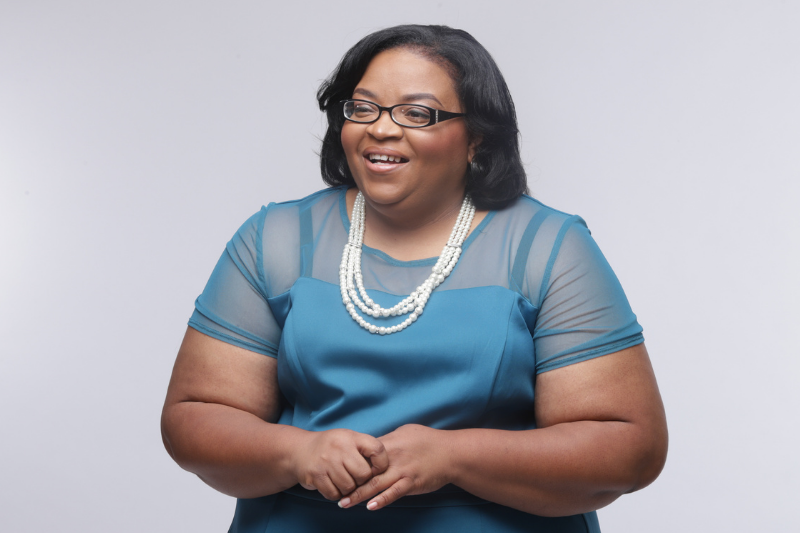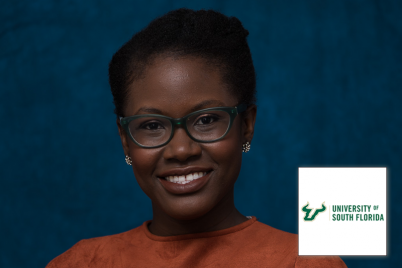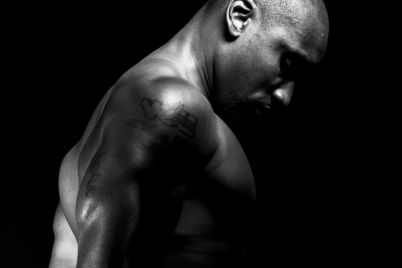Leisha McKinley-Beach, a national HIV consultant, is involved in Pinellas County’s Ending the HIV Epidemic initiative.
BY J.A. JONES, Staff Writer
ST. PETERSBURG — Leisha McKinley-Beach, a national HIV consultant involved in Pinellas County’s Ending the HIV Epidemic initiative, has been at the forefront of Florida’s battle against AIDS for 30 years. Originally from DeFuniak Springs in northwest Florida, she recalled that when she returned to northwest Florida to work as an AIDS advocate after graduating from the University of Florida, it was “one of the darkest periods of HIV for me.”
At the time, said McKinley Beach, there weren’t any Black HIV/AIDS organizations in the region; it was “a white gay male movement.” As she began to try to build support for offering HIV services to Black people, McKinley-Beach said the amount of resistance she encountered was such that, before long, she was ready to throw the towel in.
“I had resistance from the health department; I had resistance from the AIDS service organizations; if I didn’t believe in something greater than me, you and I would not be sitting here doing this story,” she averred.
McKinley-Beach said that when she started discussing AIDS impacting Black and Brown communities, it became a problem for the agencies she dealt with. While more and more Black people were being diagnosed, there were no programs centered around them and no initiatives to reach Black people.
“They didn’t want to hear that; they wanted me to remain with the AIDS service organization that was there, where the board was all white, the leadership was all white.”
McKinley-Beach was one of a handful of Blacks in lower level, non-decision-making roles. The year was 1997, a year before Congress set aside funds through the Minority AIDS Initiative to address HIV among Black and Brown people.
At the time, McKinley-Beach was working under an HIV/AIDS program coordinator who was an older white male who tried to “smooth things over with me” by suggesting new “language” for discussing HIV in minority communities.
But McKinley-Beach knew it was time to change the infrastructure and framework. She proposed forming a minority advisory board able to strategize and plan from a culturally relevant perspective.
“He and I went back and forth,” McKinley-Beach remembered, “and he got so angry, he said, ‘Fine, invite them all to come, get some chicken and some watermelon for dinner, and you will find that when they finish eating, and they leave, you will be here left by yourself to do this work.’”
This would have been upsetting for a seasoned professional to hear, but McKinley-Beach was only in her early 20s at that point.
“I had to pick my jaw up off the floor first. Then I said to him, ‘I think you need to prepare for your next job.’ I didn’t know how I was gonna do it. But I knew that he would be the biggest barrier to us getting the services that Black people need.”
Through the help of a community business owner, McKinley-Beach was able to gain the support of the NAACP presidents of four northwest Florida counties, and ultimately the man was removed from his position.
“I considered that a win. We got him out of that position, and the people who came after him, at least during my tenure there, were very cognizant of the need to be inclusive and to look at the landscape and ensure that minority folks were in positions of influence.”
McKinley-Beach went on to start the first Minority AIDS organization in Pensacola and then moved to work for the Florida Department of Health in the Bureau of HIV and AIDS. Unfortunately, they didn’t have any Black same-gender-loving men in the program, and they were the group most impacted.
Her tenure taught her that she needed to be a voice and champion for the larger Black community.
“When I walked into the room, I had to bring Black women; I had to bring Black teens, I had to bring Black men, regardless of their sexual orientation – I was their voice. And that was something that I did not take lightly.”
Today, McKinley-Beach sees Black women and Black same-gender-loving men in key positions throughout the state of Florida and as HIV/AIDS program coordinators throughout the state health department.
“I like to believe that all of those things are part of my legacy; when you see progress, you know your work is not in vain.”
Realizing early on that it was important to advocate for Blacks at decision-making levels, she noted, “When you start asking for funding allocations to implement interventions that are specific to Black communities, oftentimes, you get the ‘No, that doesn’t make sense; no, that that doesn’t yield results.’ They don’t even know whether it will yield results or not — but just like I’m making decisions based on my lived experience, they are making decisions based on their lived experience.”
As a long-term AIDS advocate who addressed racism as a public health crisis years before it was popular to call it one, McKinley-Beach said it’s crucial to acknowledge medical mistrust.
“It really is a thing, and it did not start with COVID-19, and there is so much more than just what happened in Tuskegee, Ala.”
McKinley-Beach pointed to the Mississippi appendectomies, where Black women went to the hospital needing any type of procedure such as her tonsils removed and ended up being involuntary sterilized, which was a way to control the Black population.
Read Part One of this article here.
To learn more about Leisha McKinley-Beach and her work, visit Leisha.org.
To reach J.A. Jones, email jjones@theweeklychallenger.com








